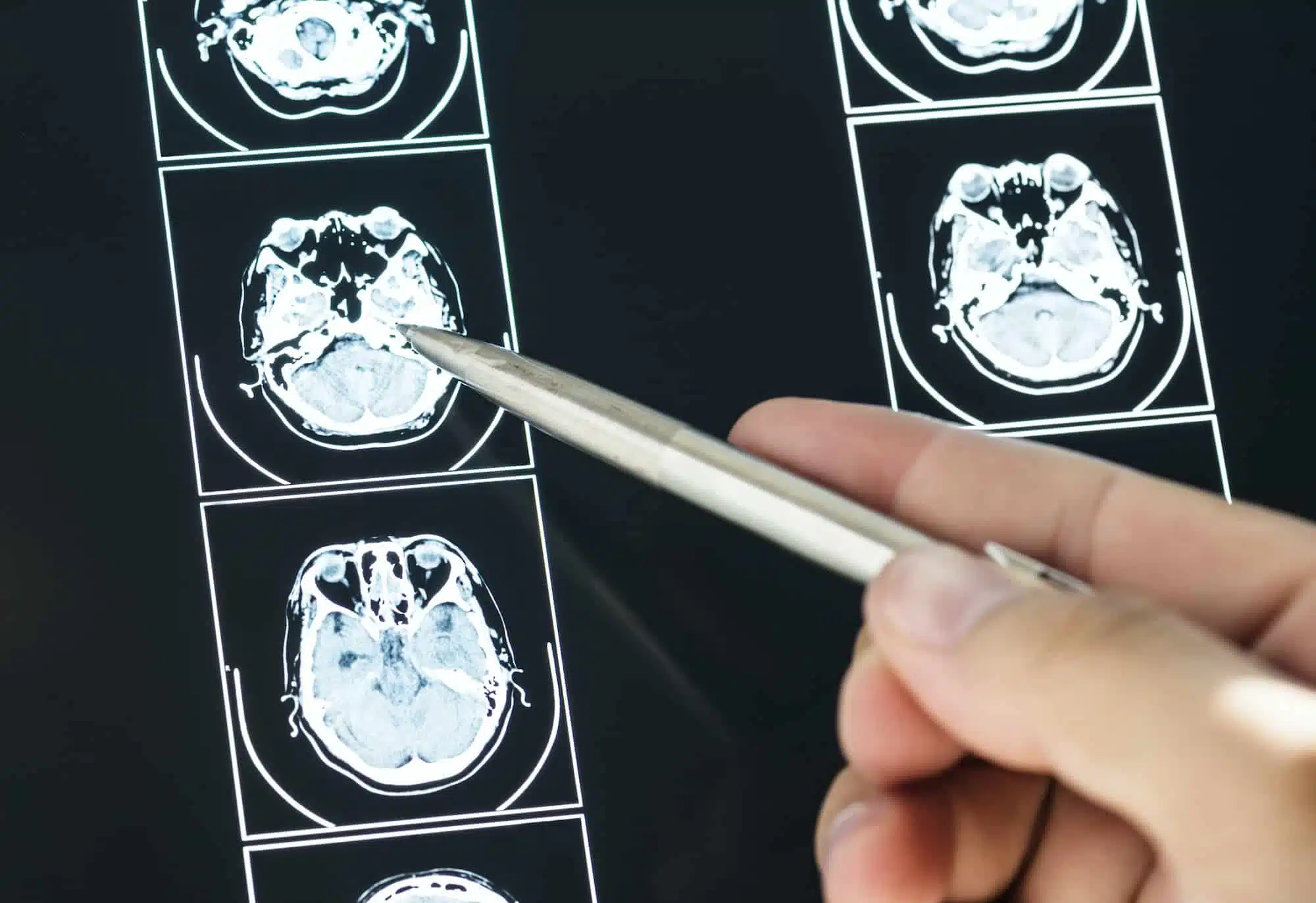Traumatic brain injuries manifest through a wide spectrum of symptoms that vary based on the injury’s severity and location within the brain. Mild TBIs typically present with headaches, confusion, dizziness, blurred vision, ringing in the ears, fatigue, and changes in sleep patterns, mood, or behavior.
More severe injuries may cause prolonged loss of consciousness, persistent headaches, repeated vomiting, seizures, dilation of pupils, slurred speech, weakness in extremities, and profound confusion or agitation.
The challenging aspect of TBIs is that symptoms often evolve over time, with some appearing immediately after injury while others develop days or even weeks later. A person who seems “fine” after an accident might gradually begin experiencing memory problems, concentration difficulties, irritability, or personality changes.
These delayed symptoms can affect their ability to work, maintain relationships, or perform everyday tasks. This delayed onset often leads to underdiagnosis and undertreatment, complicating recovery and legal claims.
Causes of Traumatic Brain Injury
According to the Centers for Disease Control & Prevention (CDC), traumatic brain injuries contribute to 30% of all injury deaths. Traumatic brain injury was a diagnosis in more than 282,000 hospitalizations and 2.5 million emergency department visits.
Some of the most common causes of traumatic brain injury diagnosis include:
- Falls
- Car accidents
- Struck by an object
- Sports injuries
- Violence
According to the CDC, falls were the reason for nearly half of all TBI-related emergency room visits; most of the visits were adults aged 65 or older. Vehicle crashes were the third leading cause of emergency room visits for traumatic brain injury.
When to Seek Immediate Medical Attention for TBI
Certain symptoms following a head injury warrant emergency medical care without delay. Seek immediate help if you or someone you know experiences:
- Loss of consciousness for more than a few minutes
- Persistent or worsening headache
- Repeated vomiting or nausea
- Seizures or convulsions
- Dilation of one or both pupils
- Clear fluid draining from the ears or nose
- Inability to awaken from sleep
- Weakness or numbness in extremities
- Extreme confusion or agitation
- Slurred speech or profound disorientation
Even if symptoms seem mild initially, you should still seek medical attention if there’s been a significant blow to the head, especially if followed by confusion, mood changes, or any loss of consciousness. Remember that TBIs can worsen without proper diagnosis and treatment, and early intervention often leads to better outcomes. Never dismiss a potential brain injury as “just a bump on the head” – proper medical evaluation is essential for identifying potentially life-threatening complications.
Long-Term Impact of Traumatic Brain Injuries
The long-term consequences of traumatic brain injuries can be profound and far-reaching, affecting nearly every aspect of a victim’s life. Cognitive impairments may include difficulties with attention, memory, reasoning, judgment, and multitasking, making previously routine tasks overwhelming challenges. Physical issues often encompass chronic headaches, fatigue, coordination problems, seizures, sleep disorders, and in severe cases, paralysis or other motor disorders that require extensive rehabilitation or permanent assistance.
The emotional and psychological impact can be equally devastating, with many TBI survivors experiencing depression, anxiety, mood swings, impulsivity, and personality changes that strain relationships with family and friends. These changes can feel like a loss of self to the victim, creating a grieving process for the person they were before the injury.
Social isolation frequently follows as the injured person struggles to navigate work environments, social situations, and sometimes even family dynamics with their new limitations.
The financial burden of TBIs compounds these difficulties, with lifetime costs often reaching into the millions for severe cases. Initial hospitalization, rehabilitation services, specialized therapies, home modifications, and assistive technologies create immediate expenses.
Long-term costs accumulate through ongoing medical care, lost earning potential, and possible need for residential care or in-home assistance. Many families exhaust their savings and go into significant debt trying to provide necessary care for their loved ones, underscoring the importance of securing adequate compensation through legal channels.
How A Traumatic Brain Injury Attorney Can Help
At Weinstein Legal Team, we understand that traumatic brain injury cases require specialized knowledge, resources, and dedication beyond what many general practice attorneys can provide. Our approach combines medical understanding with legal expertise, allowing us to translate complex neurological concepts into compelling arguments for judges and juries.
We recognize that TBI victims face unique challenges—medically, emotionally, and financially—and our representation reflects this understanding. We develop personalized legal strategies designed to address both immediate needs and long-term security.
Investigating Your Traumatic Brain Injury Case
Our investigation of TBI cases begins with a thorough analysis of how your injury occurred, who bears responsibility, and the full extent of damages you’ve suffered. We collect and analyze police reports, witness statements, surveillance footage, vehicle data, and other evidence to establish exactly how the traumatic event unfolded. This factual foundation becomes the basis for establishing liability against all potentially responsible parties, whether they’re negligent drivers, property owners, product manufacturers, or other entities.
We work closely with medical specialists including neurologists, neuropsychologists, neuroradiologists, and rehabilitation experts who can accurately diagnose and document your brain injury. These experts help establish the causal link between the traumatic event and your specific brain injury through medical imaging, cognitive testing, and detailed examinations.
Calculating the Full Value of Your TBI Claim
Accurately valuing a traumatic brain injury claim requires a comprehensive understanding of both current and future impacts of the injury. Our team works with medical experts, life care planners, and economists to document all aspects of your damages, beginning with current medical expenses for emergency care, hospitalization, diagnostic testing, rehabilitation, and medications. We meticulously track these costs to ensure nothing is overlooked in your compensation claim.
Future medical needs represent a substantial portion of most TBI claims, as many victims require ongoing care for years or even decades. We consult with specialists to develop detailed life care plans that outline your anticipated needs for medical treatments, therapies, medications, assistive devices, home modifications, and potential residential care.
These plans are then economically analyzed to calculate the present value of these future expenses, accounting for medical inflation and your life expectancy.
Beyond medical costs, we quantify your economic losses from diminished earning capacity by comparing your pre-injury income and career trajectory to your post-injury work limitations. For many TBI victims, this represents hundreds of thousands or even millions in lost earnings over a lifetime.
We also place appropriate value on non-economic damages—your physical pain, emotional suffering, loss of enjoyment of life, and altered relationships—which often represent the most significant impact of a brain injury. These intangible losses deserve recognition and compensation, despite being more challenging to quantify than medical bills and lost wages.
Negotiating with Insurance Companies
Insurance companies often approach traumatic brain injury claims with skepticism and resistance, particularly with mild to moderate TBIs that may not show obvious abnormalities on standard imaging like CT scans. They frequently attempt to minimize or dismiss cognitive, emotional, and behavioral symptoms as unrelated to the accident or exaggerated by the victim.
Our attorneys counter these tactics with comprehensive medical documentation, expert testimony, and when helpful, day-in-the-life videos that clearly demonstrate how the injury has affected your functioning and quality of life.
We approach negotiations from a position of strength, having thoroughly prepared your case as if for trial from the beginning. This preparation includes detailed demand packages supported by medical literature on TBIs, analogous case outcomes, and compelling presentations of your specific damages.
By demonstrating our readiness to take your case to court if necessary, we often motivate insurance companies to make more reasonable settlement offers rather than risk a potentially larger verdict at trial. Throughout this process, we keep you informed and involved in all decisions, never accepting any settlement without your full understanding and approval.















